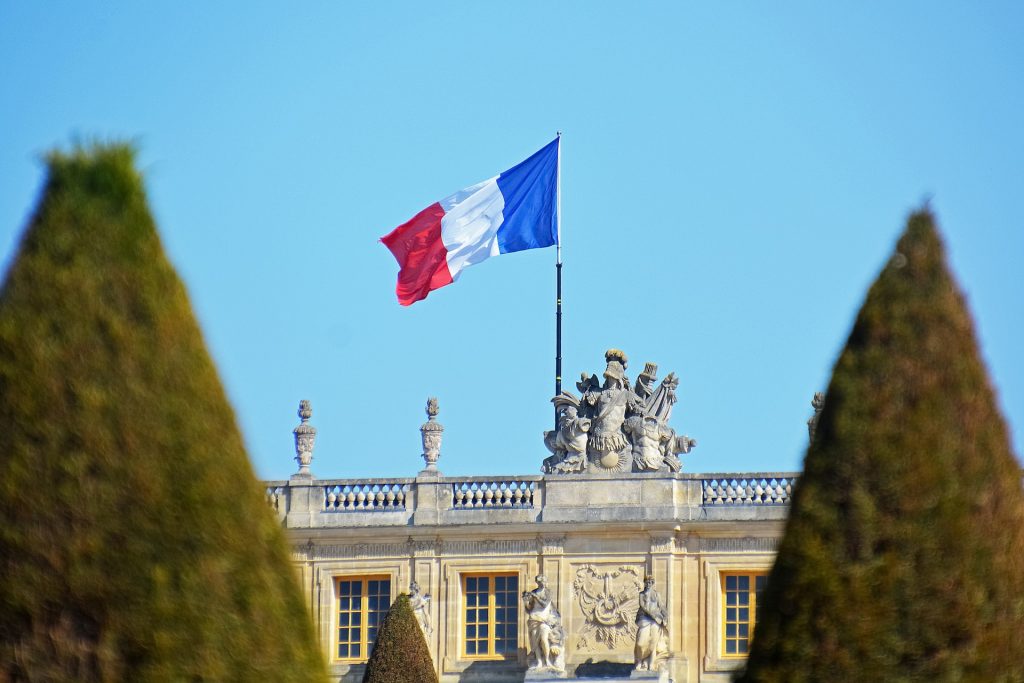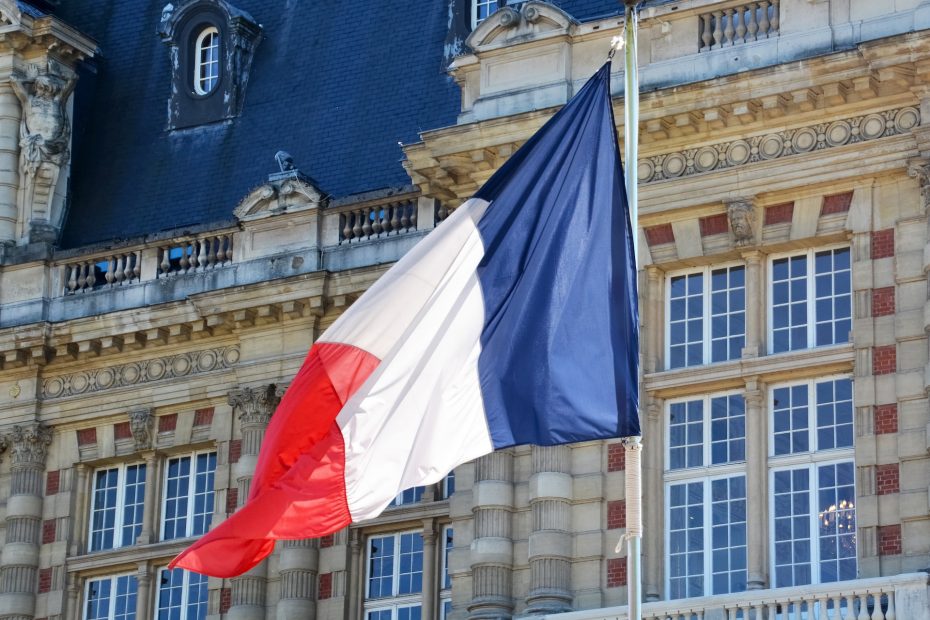France is located in Western Europe and is loved or its beauty, structures, culture and so many other attractions. Some tourist attractions in France are; Eiffel Tower (Paris), The Cote d’Azure, The Louvre (Paris), Mont Blanc (Western Europe’s largest mountain). The currency used by France is Euro (€). Some popular cities in France are; Paris called the city of love and is respected for its food, culture and attractions such as the Eiffel tower. Lyon, the culinary capital of France and often identified with various educational institutions; Lille, Bordeaux, Toulouse among others.

France remains one of the most recommended study destination for students worldwide. Educational institutions revolve around the upbringing of future leaders and making of impacts in their proper understanding of various aspects of life. This article entails details of and important information about France and its educational reputation, institutions and opportunities. This is with regards to the country being a main attraction to international students.
Why Study in France?
France a country known for its spectacular academic reputation with an excellent environment and atmospheric, perfect for international students studying in France. It is often regarded as accessible and one of the world best when it comes to education. There are about 71 public universities in France all funded by the national government, with low prices affordable by both domestic students or international students studying in France. France also has quite a number of private universities. For international students who wish to study abroad in France or in any particular educational institution in France, there are certain procedures to go through. Want to find out why you need to study in France? Check here
Having decided on what study major which will mostly certainly define the student’s life career, the admission requirements must also be met. Thus, when making an application to any French universities, certain things cannot be done away with. This includes; a signed application from the official authorities, identification card, birth certificate, student visa, passport, transcripts, civil liability certificate and proof of applicant’s payment of application fee and proof of the applicant’s language competency. Based on recent records, studying in France remains one of the most affordable options for students who in search of quality education. As for degrees, the format used is the only popularly applied through EU which are;
UNDERGRADUATE– This studies are known to last for 3 years
MASTER– This lasts for 2 years within a particular course
DOCTORATE– This is after undergraduate and master’s degree and is obtained after 3 years of studying abroad in France.
Top Institutions in France
The QS World University Rankings® 2019 includes 35 universities from France, 11 of which are ranked among the top 300 worldwide. The two best universities in the country, Université PSL and Ecole Polytechnique, rank 50th and 65th, respectively, among the top 70 universities in the world, solidifying their positions as two of the top universities in both Europe and the entire globe.
France is well-known for its several specialised business schools in addition to the 35 French universities that are included in the QS World University Rankings. These have a subject-specific focus and are not listed in the general rankings, but they have a solid international reputation. ESCP Europe, ESSEC Business School, HEC Paris, and INSEAD are a few notable examples. The best institutions in France also have some of the lowest tuition costs in the world, with both domestic and foreign students paying an average of less than $1,000 per year. The following are the top institutions in France;
Paris Sciences et Lettres Research University (PSL)
This institution is an excellent public research based university with a world-leading reputation as an educational institution. The university has also maintained international relationship with other world-class universities such as; UCL, EPFL and University of Cambridge. Paris Sciences et Lettres Research University has embarked on projects and research advancements. The university is that which is made up of nine constituent colleges and covers all areas of knowledge. It was formed in the year 2010 but became formally recognized in the year 2019 and is located in Paris.
The university originally encompasses 5 institutions but is presently of ten affiliated institutions and nine academic and research institutions. PSL makes provision education in undergraduate and masters and doctorate degrees. It known for its structures and facilities made available to students which includes; labs, workshops, libraries, museum, digital resources and so many more. The university takes responsibility for the intellectual grooming of its students both domestic and international students studying abroad.
Ecole Polytechnique
École Polytechnique which is also known as L’X is a prestigious French public institution which was established in the year 1794. The university’s academic rankings also depict that high standard and competency of the university and École Polytechnique takes up the responsibility of academic excellence of the students by making available top notch facilities and intellectually capable and experienced lecturers. The campus is a lively one with nice housing accommodation, satisfying dishes from its restaurants, a central library, health and counselling services
The institution has a representation of its students by a student board and also with contract employees making up the teaching staff. The founding member of the Aristech collegiate university and is located 30km outside the Paris city center. The institution offers undergraduate and graduate programs (Bachelor’s, Master’s and PHD degree). The university has been able to established and offer courses on three main graduate programs which are; Bachelor of Science, Ingenieur Polytechnicien and Master’s of Science and Techmologie and PhD. Some courses for Master’s degree are; Data Science and Analytics, Computer Science and IT, Engineering and Technology, Cyber Security, Environmental Science and Humanities and Culture.
École Normale Supérieure de Lyon
This institution located in the city of Lyon and is regarded as elite public institution which provide quality education and training with research facilities and other resources to the likes of researches, professors, civil servants amongst others. In comparison to public universities in France, Grandes Écoles often have substantially smaller class sizes and student populations, and many of their programs are offered in English. ENS de Lyon charges the same tuition costs as French universities, despite the fact that most Grandes Écoles are more expensive.
CentraleSupélec
This institution was formed in the year 2015 as a result of the merger of École Centrale Paris and the Supélec graduate school of engineering, in 2015 with about 150 faculties. It is also a founding member of the Université Paris-Saclay. The institution has been able to successfully maintain international cooperation’s. International agreements in international development with other international educational institutions.
Till date, the institution is regarded as one of the top five Engineering institutions in the country. To make a valid application to study abroad in the institution, there is a need for such applicant to have a high school records of 3.5 GPA and of 85 percentages. Also, for IELTS, there is a need for the applicant to meet a minimum score of 6.5. The institution enrols international students who apply for study abroad in the institution and the institution makes provision for engineering degrees, master’s degree and doctoral degree.
Sorbonne University
An institution known for its good reputation and was brought about by the merger of Paris-Sorbonne University and Pierre and Marie Curie University. The university is located in the beautiful city of Paris in France and upon the merger, it was formally created in the year 2018. The university is quite suitable for international students, the environment is peaceful and conducive, there are halls of residence to accommodate students and other things which make studying easy for the students as well as proper relaxation.
France Educational System
Higher education in France is divided into two parts: universities, or “Université,” and Higher Schools, or “Grandes Ecoles,” which provide managerial and scientific curriculum. This system was left over from our nation’s political and economic past. To be admitted to a university to enroll in a typical program, candidates must pass the “Baccalauréat” (the final exam at the conclusion of secondary education), which is administered to candidates who are around 18 years old
(Bachelor-Master-Doctorate). To be eligible to compete in a very competitive admissions process to the “Grandes Ecoles,” students who have completed the “Baccalauréat” and wish to enroll in “Classes Préparatoires aux Grandes Ecoles (CPGE)” must complete a specific preparation program over the course of two years.Only the top 20% of applicants are approved after a national process that organizes access to the CPGE classes. The students take intensive courses (with small classes and frequent assessments) mostly in mathematics, physics, chemistry, and the natural sciences (biology and geology) during the CPGE cycle, which validates 120 ECTS.
In order to obtain access to one of the “Grandes Ecoles,” students must retake an entrance exam after completing their CPGE coursework. Thus, those accepted into the ENSG can be regarded as being among the top 10% of prospective geoscience students in all of France. Following entry into the “Grandes Ecoles,” students complete a three-year curriculum that validates 180 additional ECTS (for a total of 300 ECTS) and leads to “Ingénieur” graduation, which awards the graduate the European Master’s Degree.
The curriculum focuses on social, economic, and management skills in addition to scientific and technical disciplines. All of the students who graduate do so with the following accomplishments: – English language proficiency at level B2 (according to the European Framework of Reference for Languages); – a minimum of 28 weeks of industry or research centre internship; – a research training session.
France Educational System Compared to Other Countries
Institutions in France offer education that can easily compete with other countries. In France, for all children between ages 3 to 16, education is compulsory. An advantage of France educational system is free education in state schools while catholic school as private schools also exist. There is also the special interest and attention given to the unique curriculum of every school in France, that is in all schools the same education is given and the curriculum is based on the decision of the French Ministry of Education. Unlike countries like England, school uniforms are not used so as to avoid social difference. Also being compared to the American education system which is less focused on examinations, exams are given top notch attention.

Scholarships/Financial Aids/Bursaries
For international students who desire to study abroad in France, scholarships are made available. Given below is a list of scholarships which students interested in studying abroad in France can apply for provided the needs conditions, documentations and requirements are met. Access to research and educational facilities with some other benefits are accompanied by these scholarship opportunities in France instructions. Some of these scholarships are fully funded and partly funded. They are;
1. Erasmus Mundus Joint Scholarship- a study programme which requires taking of master’s program in at least two countries.
2. International Fashion Academy -a full scholarship in Paris, France open to international students who wish to study abroad
Other scholarships available are; École Normale Supérieure Scholarships, INSEAD MBA Scholarships, Ampère & MILYON Scholarships, Université Paris-Saclay International Master’s Scholarships, Université de Lille Scholarships
To apply for scholarships in France, students should check out the official website of the institution of they want to apply for and follow the given instructions.
Student Visa Processing
For EU citizens and citizens of Switzerland, Iceland, Norway and Liechtenstein, there is no requirement for visa.
For students applying from non EU countries, there is a need to get a visa including a residence permit (VLS-TS) and this is valid for just a year with the option of renewal. To obtain a visa, an application form must be filled and as there is a need to make available to the OFII (the French Office of Immigration and Integration):
Passport photographs, proof of enrolment or acceptance to study abroad in an institution in France, proof of no serious criminal record, proof of accommodation, a medical examination is to be taken, proof of financial capacity, evidence of status, proof of health insurance although not necessary for a citizen of EEA and holder of EHIC card.
For students interested in studying abroad in France, there are quite a number of student visa made available and can be applied for. They include;
1. Visa de court séjour pour etudes (Schengen short-stay student visa)- This visa is a temporary student visa which covers a maximum period of 3 months of stay in the country and it is important to note that this visa is not renewable
2. Visa de long séjour etudes ( temporary long-stay visa)
For international students who want to study abroad in France and take courses which will exceed the period of 3 months but not more than 6 months, an application can be made for this type of visa.
3. Long stay visa
This visa is for students who will be offering courses which we take a period more than six months, that is the student’s stay shall be for a longer period of time with the inclusion of a Residency permit.
4. Extended stay research scholar visa
5. Talent passport visa
Post Study Opportunities
For international students studying in France with a study visa and a valid resident permit, there is the opportunity to take on paid work with an estimation of 964 hours for work in a single year. Graduate students cannot stay back in France after their studies without already having a paid work, that is only students who have paid employments can stay back in France and also male application for a residence permit.
However, the chance to stay back for a period of 12 months is allowed for a graduate having a Bachelor’s degree to look for employment, this is possible with an application for an Autorisation Provisoire de Séjour, which is a temporary residence permit. As an international student with a study visa in France, you can take on paid work – 964 hours in a single year (about 60% of full-time employment for a year) – while you are on the course, as long as you have a valid residency permit
With a professional license or master’s degree, a student’s having studied abroad in France can apply for an extra year to take up any job as a financial support while in search of full time job. However, if the above the minimum wage (1.5), a conversion can be made from student to employee with a full-time work. On the other hand, postgraduates can apply for a nonrenewable temporary residence permit which will last for a period between one year to two years. A master’s degree holder can apply for a work permit to have aa better period of time to find a job after the completion of their course.There are however a lot of job vacancies for certain sectors and they are; Banking and Finance, Information and Technology, Tourism and Hospitality, among others.
Final Thoughts
While continuing your academic education, studying abroad is a fantastic chance to broaden your horizons, learn about a new culture, and meet new people. Studying abroad can help you gain confidence and problem-solving abilities, both of which are crucial for personal and professional success.
Studying in France will help you learn the French language and enable you to interact with the 300 million French speakers worldwide. Second, as French is a common working language in both business and international relations, speaking it might be useful.
